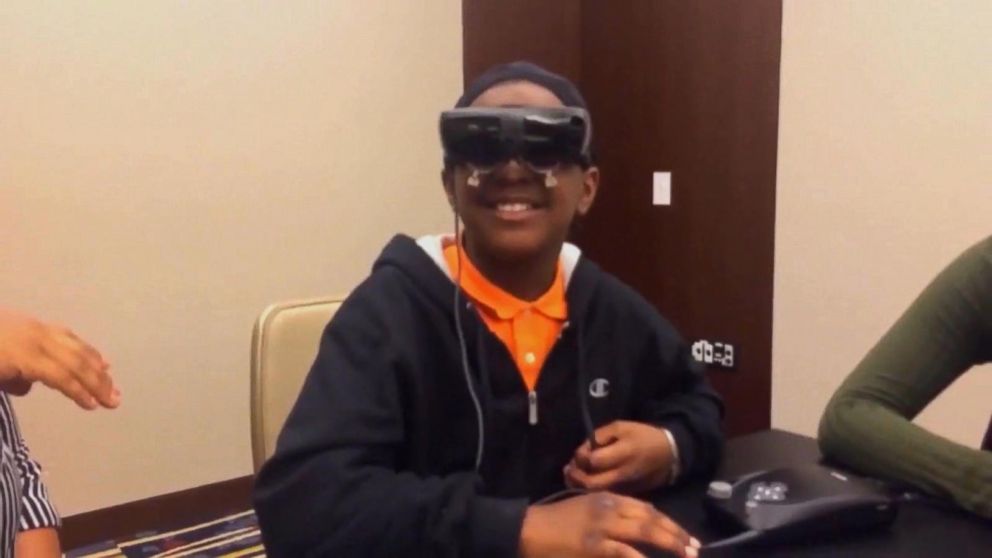Legally Blind 5th Grader Sees Mother for 1st Time Through Electronic Glasses
The special moment brought the 12-year-old's mother to tears.
— -- Fifth grader Christopher Ward, Jr., has been legally blind all his life, but he recently got to see his mother for the first time through new electronic glasses.
The 12-year-old from Forest, Virginia, traveled up to Washington, D.C., a few weeks ago to demo a new wearable technology called eSight, according to his mother, Marquita Hackley.
eSight's hands-free headset contains a small, high-speed camera that captures live video, which is sent to a LED screen in front of the user's eyes, allowing them to see with "unprecedented visual clarity," according to eSight's website.
For Hackley, witnessing her son use the glasses and "really see for the first time in his 12 years of life" was "overwhelming and exciting."
"The very first thing he did was turn to me and say, 'Oh, Mommy! There you are!" Hackley, 32, told ABC News today. "And then to hear him say, 'I saw my mom, and she was very pretty,' was so heartwarming. And aside from pretty, just the fact he could even see me meant the whole world to me."
Ward also got to watch his favorite TV show "SpongeBob," Hackley said. She explained that though her son "watches TV a little bit at home, [but] in order to see anything, he has to be directly up on the TV" and that "even then, he still can't see all that clearly."
Ward was born with optic nerve hypoplasia, meaning his optic nerve never fully developed before birth, Hackley said, adding that Ward "only has little light perception in his left eye and very, very low vision in his right eye."
"Something has to be up in his face, almost touching for him to see it," she said. "And even though Ward wears glasses on a daily basis, they're more for protection than vision because there is a strong possibility he could lose the little sight he does have if were to get hurt or hit on the face."

Hackley is now raising money to buy eSight for Ward, she said, explaining that the glasses cost $15,000 and her insurance doesn't cover it.
She believes the technology could change Ward's life and open up more opportunities, such as getting more chances to stay in regular classes and learning how to read and write print.
Currently, Ward has to use a braille reader and writer to communicate through text, Hackley said.
"Christopher is just a very loving kid, always happy and never complains about anything," she said. "I'll do anything to help get him what he deserves."



